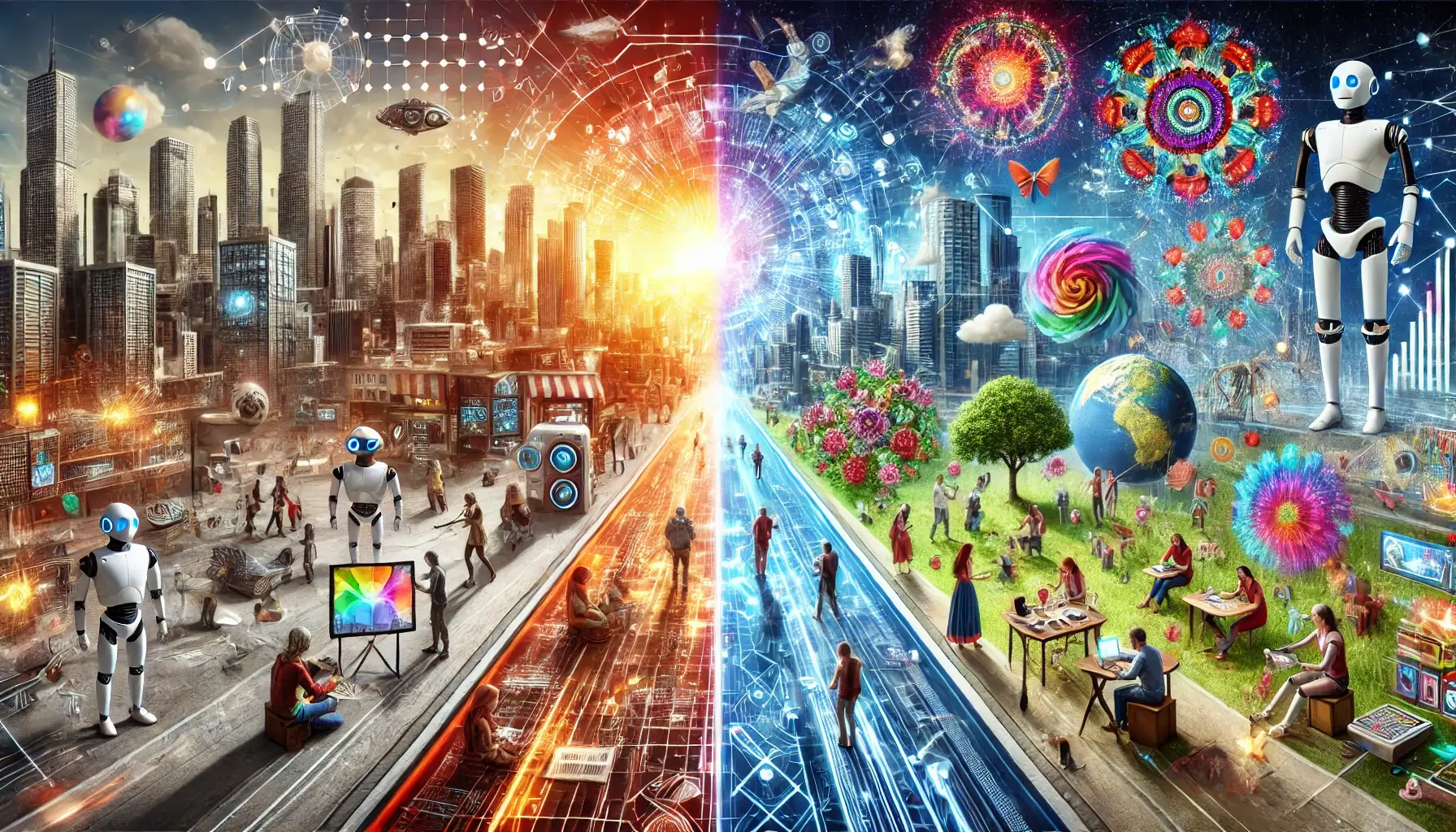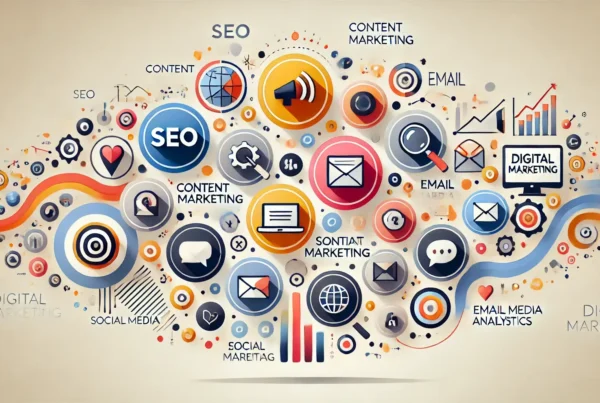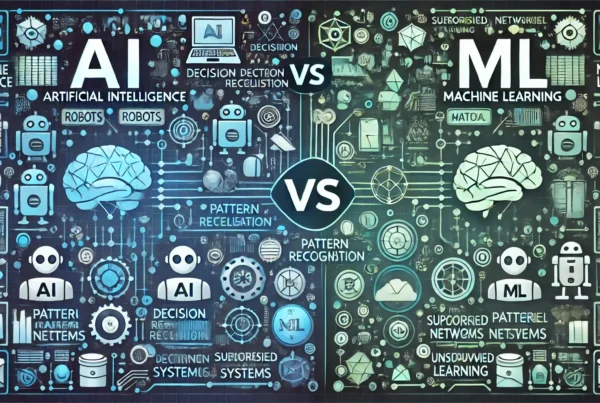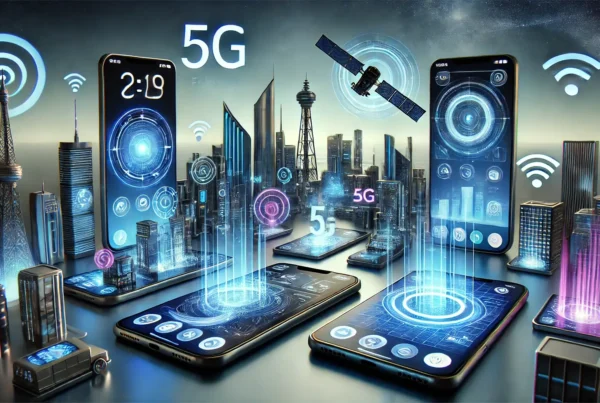In the rapidly evolving landscape of technology, the debate over artificial intelligence (AI) versus human intelligence has become a focal point of discussion. As AI systems continue to advance, capable of performing complex tasks that were once exclusive to humans, it is essential to explore the nuances of this relationship. This article delves into the distinctions between AI and human intelligence, their respective strengths and weaknesses, and the implications for various sectors, including the job market.
The Nature of Intelligence
Before diving into the specifics of AI and human intelligence, it is crucial to understand what intelligence means. Intelligence can be broadly defined as the ability to acquire and apply knowledge and skills. This encompasses problem-solving, learning from experience, adapting to new situations, and understanding complex ideas.
Human Intelligence
Human intelligence is characterized by several unique features:
- Emotional Intelligence: Humans possess the ability to recognize and manage emotions, both their own and those of others. This emotional awareness is vital for effective communication, empathy, and social interactions.
- Creativity: Humans have the capacity to think outside the box, generate novel ideas, and engage in artistic endeavors. Creativity often involves making connections between seemingly unrelated concepts.
- Common Sense: Humans can use contextual knowledge and life experiences to navigate everyday situations, making judgments based on nuanced understanding.
- Moral and Ethical Reasoning: Humans can engage in complex ethical reasoning, understanding right from wrong and considering the consequences of their actions.
Artificial Intelligence
AI, on the other hand, refers to the simulation of human intelligence in machines, designed to think and learn like humans. AI systems can perform specific tasks and improve their performance over time. The major types of AI include:
- Narrow AI: This type of AI is designed to perform a specific task, such as language translation, facial recognition, or playing chess. It operates within a limited context and cannot generalize beyond its programming.
- General AI: General AI, still largely theoretical, would possess the ability to understand, learn, and apply intelligence across a broad range of tasks, similar to a human. While researchers are making strides toward this goal, it remains a distant reality.
- Superintelligent AI: This hypothetical form of AI would surpass human intelligence in virtually every field, potentially leading to profound implications for society.
Capabilities: A Comparative Analysis
Efficiency and Speed
One of the primary advantages of AI over human intelligence is its efficiency and speed. AI systems can process vast amounts of data and execute tasks at an extraordinary pace. For instance, in fields such as finance and healthcare, AI algorithms can analyze data sets, identify patterns, and generate insights much faster than a human could. This capability leads to improved decision-making and increased productivity.
Accuracy and Precision
AI excels in tasks that require high levels of accuracy and precision. For example, in medical diagnostics, AI can analyze medical images and identify anomalies with remarkable accuracy, sometimes outperforming human radiologists. This level of precision is especially beneficial in industries where mistakes can have dire consequences, such as aviation and manufacturing.
Learning and Adaptability
AI systems are designed to learn from data, allowing them to adapt to changing environments and improve over time. Machine learning algorithms can identify patterns and trends in data, enabling AI to make predictions and recommendations based on past behavior. While humans can also learn and adapt, AI’s ability to process large volumes of information quickly gives it an edge in specific contexts.
Human Touch
Despite its advantages, AI lacks the human touch. Emotional intelligence, creativity, and ethical reasoning are areas where humans excel. Jobs that require empathy, complex decision-making, and interpersonal skills are challenging for AI to replicate. Professions in healthcare, education, and the arts rely heavily on these human qualities, emphasizing the value of human intelligence.
The Impact of AI on Employment
As AI continues to advance, its impact on the job market is a critical concern. While AI has the potential to create new jobs, it may also render certain roles obsolete. Here are some key points to consider:
Job Displacement
AI and automation threaten to displace jobs in various sectors. Routine tasks, such as data entry, customer service, and assembly line work, are increasingly being automated. According to a report by McKinsey, up to 800 million jobs worldwide could be displaced by automation by 2030. This raises questions about the future of work and the need for workforce retraining.
Job Creation
Conversely, AI also has the potential to create new jobs and industries. As technology evolves, new roles will emerge that require human oversight, creativity, and strategic thinking. For example, jobs in AI development, data analysis, and cybersecurity are on the rise, necessitating a skilled workforce to meet the demands of the digital economy.
Reskilling and Upskilling
To navigate the changing job landscape, reskilling and upskilling are essential. Workers must adapt to new technologies and acquire skills that complement AI capabilities. Educational institutions and companies are increasingly focusing on training programs to equip individuals with the necessary skills for the future job market.
Ethical Considerations
As AI becomes more integrated into society, ethical considerations arise regarding its use and impact. Key issues include:
Bias and Fairness
AI systems can perpetuate biases present in the data they are trained on. This can lead to discriminatory outcomes in areas such as hiring, lending, and law enforcement. Ensuring fairness and accountability in AI systems is crucial to prevent harm and promote equitable outcomes.
Privacy Concerns
The use of AI often involves the collection and analysis of personal data. This raises concerns about privacy and data security. Striking a balance between leveraging data for AI advancements and protecting individual privacy is a significant challenge.
Accountability and Transparency
As AI systems make more decisions autonomously, questions arise about accountability. Who is responsible for the actions of an AI system? Establishing clear guidelines for accountability and transparency is essential to ensure ethical AI use.
The Future: AI and Humans Coexisting
Rather than viewing AI and humans as adversaries, it is more productive to consider how they can coexist and complement each other. The future of work will likely involve a collaboration between humans and AI, leveraging the strengths of both.
Collaborative Intelligence
Collaborative intelligence refers to the partnership between humans and AI systems. In this model, AI handles tasks that require speed and efficiency, while humans focus on creativity, empathy, and ethical decision-making. This synergy can lead to improved outcomes in various fields, such as healthcare, education, and business.
Emphasizing Human Skills
As AI continues to evolve, the demand for uniquely human skills will grow. Soft skills, such as communication, problem-solving, and emotional intelligence, will become increasingly valuable in the job market. Individuals who can navigate complex social interactions and provide empathetic responses will be in high demand.
Lifelong Learning
In a world where technology is constantly changing, lifelong learning will become essential. Embracing a growth mindset and continuously updating skills will be crucial for individuals to thrive in an AI-driven economy.
Conclusion
The debate between AI and human intelligence is complex and multifaceted. While AI offers remarkable capabilities in efficiency, accuracy, and data processing, it cannot replicate the emotional intelligence, creativity, and ethical reasoning that define human intelligence. As we navigate the evolving landscape of technology, it is vital to recognize the strengths and limitations of both AI and humans.
By fostering a collaborative approach, emphasizing human skills, and addressing ethical concerns, we can harness the power of AI while preserving the unique qualities that make us human. The future will not be a battle between AI and humans but rather a partnership that enhances our lives and drives innovation forward.
Learn About Quantum Computing




